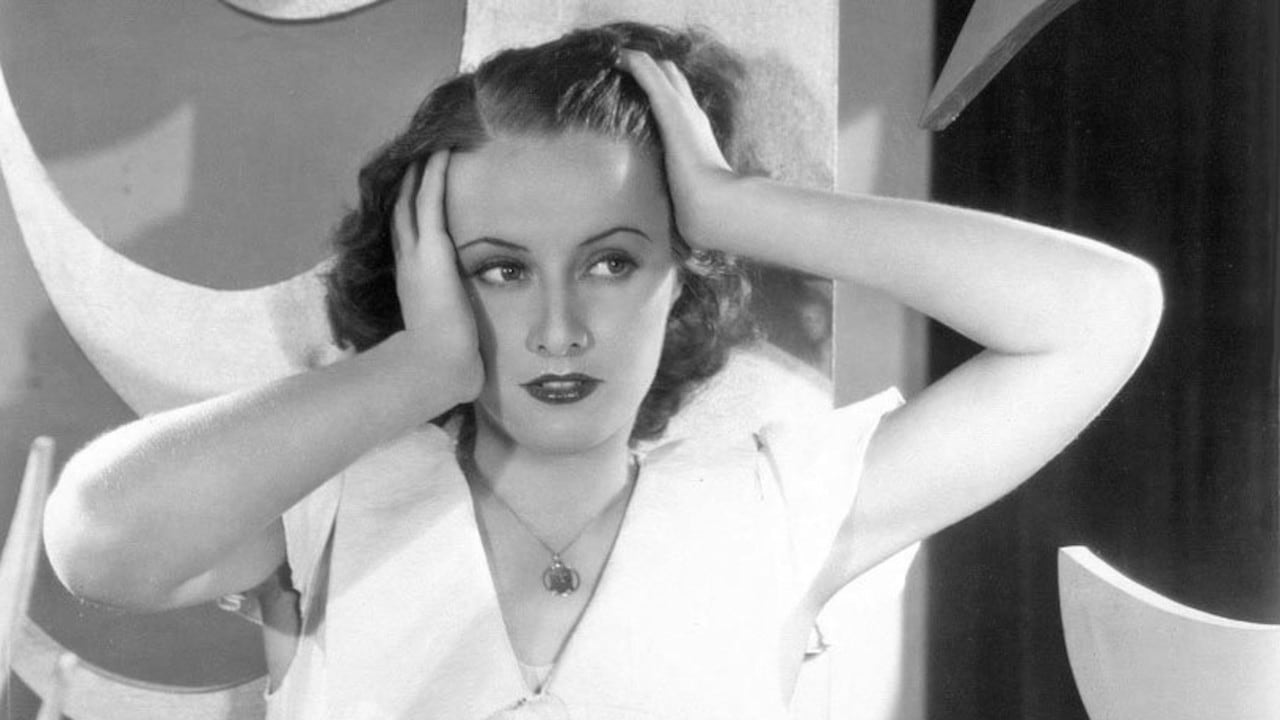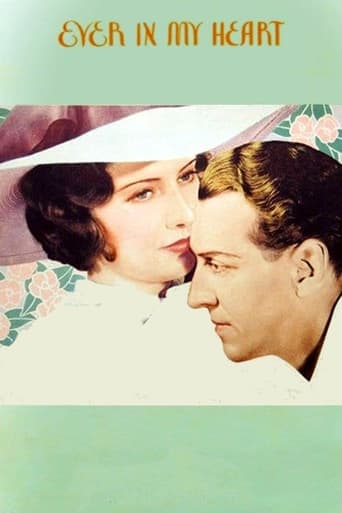BoardChiri
Bad Acting and worse Bad Screenplay
Twilightfa
Watch something else. There are very few redeeming qualities to this film.
Gurlyndrobb
While it doesn't offer any answers, it both thrills and makes you think.
Darin
One of the film's great tricks is that, for a time, you think it will go down a rabbit hole of unrealistic glorification.
mysterv
TCM showed this film and I saved it on my DVR for later viewing. Barbara Stanwyck, World War I, Germans and throw in mystery...sounded like a good old war themed movie. Turns out it was a movie that could have only been made around 1933. It was sandwiched just right between the two World Wars to deal with the issues in the film. It showed the life of a German who married an American in the years before the Great War. Later in the film the War became a major focus and impact upon his life and his family. My grandfather was of German heritage. He was born in the US but both his parents were from Germany. When he became of age he attempted to enlist in WW I but was turned down because he was 'German'. Didn't matter that his family had arrived before the Civil War and had fought for the Union. When my family finished viewing this film we all thought - this film is 'different'. The theme was not something I was expecting and not something I had every seen in other films. A young Barbara Stanwyck was a bonus. Worth watching if you enjoy older films.
blanche-2
Barbara Stanwyck and Otto Kruger star in "Ever in My Heart," a 1933 film directed by Archie Mayo and also starring Ralph Bellamy.Stanwyck plays Mary Archer, who, in 1909, falls in love with a young German, Hugo Wilbrandt (Otto Kruger), a friend of her cousin Jeff (Ralph Bellamy). They get married right away and settle down, and eventually have a baby boy. Hugo proudly becomes an American citizen.Tragedy strikes the couple. When World War I occurs, the anti-German sentiment forces Hugo out of his teaching job and unable to find any other work. Mary's family wants them to move back in with them, but they want Hugo to change his name, which he won't do. He talks Mary into staying with them, saying he will join her in a week. He doesn't; he turns his back on America and returns to Germany to fight the war with the Germans.Mary divorces Hugo and later goes overseas to work for the war effort. There, she runs into Hugo.I knew the plot of this film, but there were elements of it that I did not know, so I found the film even more profoundly depressing than I expected. Barbara Stanwyck is wonderful, going from a fresh, young, happy woman to one who has to endure horrible sadness. Otto Kruger is very effective as well, but this is really Stanwyck's film. She'll break your heart.Beautifully done film, but be prepared!
marcslope
Good little Warners soap, up to a point--and at that point it veers off into ridiculous plot coincidence and a rushed, depressing ending. Stanwyck contributes even more expressiveness than her considerable usual, and Kruger is an appealing leading man, until the wild contortions of the plot lead us to hate him, after the movie's spent three-quarters of its time cementing our allegiance to him. Warners, always wanting to be The Socially Conscious Studio, registers some truths about American prejudice that must have rung true and discomfiting a decade after the war. But then it hedges its bets by telling us, see, you never should have trusted this guy in the first place. Bellamy's stuck on the sidelines playing his usual Guy Who Doesn't Get the Girl, and there are tasty contributions from Elizabeth Patterson and the ever-indispensable Ruth Donnelley.
MartinHafer
For a retired history teacher, there sure is a lot to love about this film. "Ever in My Heart" discusses one of the big secrets of twentieth century American history. Few today realize that during WWI, there was a serious backlash against Germans living in the United States. This is odd, as through most of the war, Americans were roughly divided in half between those who supported the Central Powers (including the Germans) and the Allied Powers--and the average American just wanted us to stay out of the conflict. Yet, in a case o political and newspaper jingoism, the country went from very neutral (in 1916 Wilson's re-election campaign motto was "he kept us out of the war") to declaring war only three months later! And, at the same time, the pub went insane--and often persecuted anyone of German heritage--roughly 25% of the country!! Riots, beatings and even murders of German-speaking citizens (some of which were actually Swiss or Dutch) were relatively common and many German-Americans changed their names to avoid persecutions. German-language newspapers and churches ceased as well.This film was exceptionally well directed, sensitively written and acted and it's obvious Warner Brothers believed in this film. This actually isn't surprising, as in the early 1930s, Hollywood was very pro-German--as Americans were now having second-thoughts the advisability of their involvement in this war as well as the persecutions of Germans in the country. In other words, it was a pretty safe topic to question American attitudes during WWI by 1933. Simply stated, people in America were feeling sorry for the Germans---which, ironically, coincided with the rise of fascism (oops--talk about bad timing).In "Ever in My Heart", Mary (Barbara Stanwyck) falls in love with Hugo (Otto Kruger) and they marry. He's a very nice man and they have every reason to be happy. Soon after marrying and having a child and the household is bilingual. Hugo also becomes an American citizen and he is proud of him family and new nation. And, at about the same time, WWI begins. As the war progresses, however, anti-German sentiments begin to affect Hugo as well as his family. First, their ' friends' begin to shun them. Then, he loses his job simply because he's a German-American. And then, it gets MUCH worse....and, towards the end, a bit hard to believe--but still quite exciting. I won't say more--I don't want to spoil it. Suffice to say it's a heck of a good film--and might just bring a tear or two to your eyes.By the way, although Otto Kruger was a fine actor and was very good here, he actually was not a German (despite his excellent German language skills) but his heritage was Dutch.

